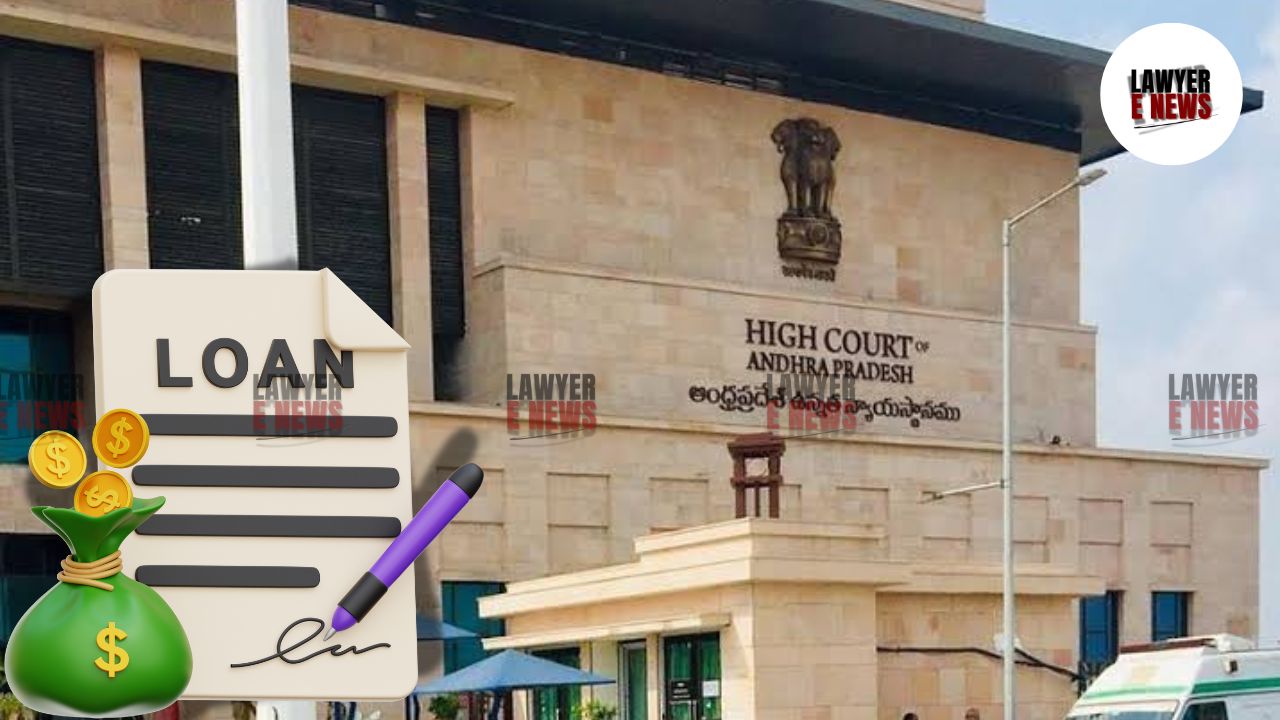-
by Admin
15 February 2026 5:35 AM



The Andhra Pradesh High Court, in a recent ruling, partially modified the interest rate on a loan default in a dispute involving Avula Subrahmanyam Reddy and the State Bank of India. The court upheld the trial court’s judgment in favor of the bank but adjusted the contractual interest rate to a more reasonable level. The judgment was delivered by Hon’ble Justice V. Gopala Krishna Rao on August 23, 2024, in an appeal suit that had been pending since 1999.
The case originated from a loan agreement between Avula Subrahmanyam Reddy (defendant) and the State Bank of India, Vadamalapet branch (plaintiff). On February 27, 1993, the bank extended an agricultural term loan of ₹1,70,000 to Reddy for the acquisition of a tractor and trailer, with the interest rate set at 15.5% per annum. However, Reddy failed to repay the loan, resulting in a suit filed by the bank in 1997 to recover the outstanding amount of ₹2,88,667.50, which included the principal and accrued interest.
The court noted that the bank provided substantial evidence supporting its claim, including documents such as the hypothecation agreement, ledger extracts, and correspondence with Reddy. Testimonies from bank witnesses and documentary evidence clearly established the existence of the loan, the execution of relevant agreements, and the default by Reddy. The bank’s reliance on Reserve Bank of India circulars to justify the interest rate further strengthened its case.
Reddy, in his defense, claimed that he had made a partial payment of ₹55,000 towards the loan but did not receive a receipt. He also argued that the bank had obtained his signatures on several blank documents and did not inform him of the interest rate at the time of granting the loan. The court found these arguments unsubstantiated due to a lack of evidence. It was noted that Reddy, who is not illiterate, failed to prove that the bank acted in bad faith or misled him during the loan transaction.
Justice V. Gopala Krishna Rao carefully considered the interest rates applied by the trial court and the principles set out by the Supreme Court in similar cases. He referenced several precedents, including the rulings in N.M. Veerappa vs. Canara Bank and Central Bank of India vs. Ravindra and others, to conclude that while the bank was entitled to the principal amount and interest, the contractual rate of 15.5% was excessive given the circumstances. The court, therefore, modified the interest rate to 12% per annum from the date of the suit until the date of redemption and 6% per annum thereafter until realization.
The court’s decision to adjust the interest rate reflects a balanced approach, recognizing both the rights of the creditor to recover dues and the need to ensure that interest rates are not punitive. The court emphasized that while contractual interest rates are generally upheld, they must be reasonable and justifiable, particularly when dealing with agricultural loans where the borrower’s ability to pay is a significant concern.
The Andhra Pradesh High Court’s ruling in this case underscores the importance of fairness in the application of interest rates in financial disputes. By upholding the principal amount due to the bank but reducing the interest rate, the court has ensured that justice is served on equitable grounds. This judgment sets a significant precedent for future cases involving loan defaults, particularly in the agricultural sector, where borrowers often face financial difficulties.
Date of Decision: August 23, 2024
Avula Subrahmanyam Reddy vs. State Bank of India
